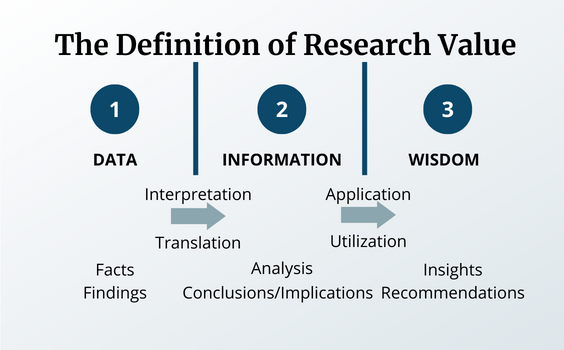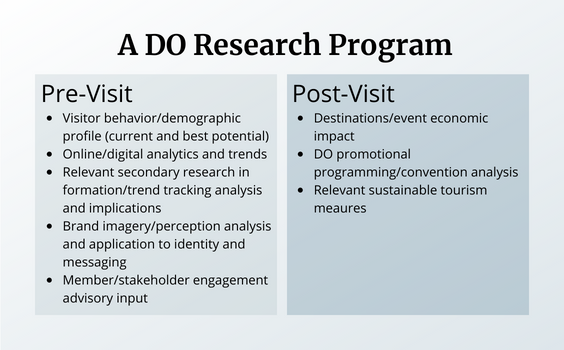élan DO 2050 vigorous spirit and enthusiastic mindset.
A Bimonthly Briefing on Destination Organization Matters and DCG Activities.
Issue 3

Image: Globe Life Field, Arlington, TX
EDITORIAL: Destination Research Needs and Strategy Typically Neglected
Data driven decision-making has come out of the cold and finally a recognized operational standard to allow destination organizations (DOs) to be smarter and more credible as tourism leaders of their communities. However, a better understanding of research and its benefits is warranted.

Effective planning with attainable results requires a dedicated and supportive research or intelligence program. Over the past 25 years, DOs have devoted more attention and budget allocation to know better visitor/customer markets and related management functions, especially the expected and actual outcomes of their efforts. This has been acknowledged through the increasing employment of 100+ full-time tourism/destination information and strategy officers in the US/Canadian destination profession. The primary benefits of a research program are five-fold:
- Better integrated destination planning tied to strategic priorities
- More effective tourism programming to consider
- Greater precision in target marketing, development and community relations
- Assists specifically in sales, promotion and communications strategies
- More effective program monitoring and results evaluation.
A simplified and cost-effective multiyear DO research program contains at minimum the following components.

DOs are expected now to invest in multiyear research programs to be fully vested in their strategic and operational plans being priority visitor/audience-focused and knowing the returns of efforts.
On a final note, research data only becomes valuable if it is interpreted well with key conclusions and recommended directions drawn. This information is normally vetted through past experience and instinct, and in most cases confirms through third party endorsement previous understanding and acknowledgments. Given in most cases limited means, research programs can be creatively developed by seeking organizations with similar needs and forming mutual relationships with educational institutions that can provide affordable research capabilities. What is required now more than ever is research-oriented/evaluative data driven DOs with marketing, development and advocacy strategies based on sound factual information gathering and interpretation.
Let me know if you agree or not.

